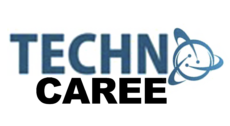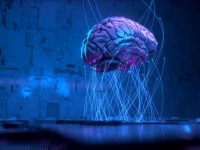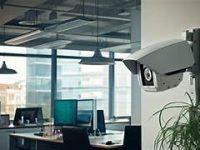Revolutionizing Healthcare with IoT: Benefits and Applications

Since IoT technology was introduced, the healthcare business has changed drastically. IoT has transformed healthcare delivery, making it more efficient, accessible, and patient-centered. IoT is transforming healthcare, and this article will discuss its uses and benefits. Let us talk more on iot healthcare now.
Healthcare IoT Applications
Remote Patient Monitoring (RPM)
Remote Patient Monitoring (RPM) is an important IoT application in healthcare. Wearable and medical sensors allow doctors to remotely monitor patients’ vital signs and health. Real-time data helps identify health risks early, decreasing hospitalizations. Continuous monitoring can benefit chronic disease patients including diabetes and heart disease without frequent clinic visits.
Smart Medical Devices
IoT has enabled the development of smart medical devices, improving diagnostic and treatment accuracy and efficiency. Intelligent insulin pumps and inhalers can provide medicine doses depending on real-time data for tailored and precise treatment. Smart thermometers and blood pressure monitors let patients to monitor their health at home, helping doctors make educated decisions.
Asset and Inventory Management
IoT plays a significant role in enhancing hospital operations by managing assets and inventory efficiently. RFID tags and sensors can keep medical equipment in good condition and prevent theft. IoT solutions track and manage medicine and medical supply inventories, reducing waste and ensuring vital products are always available.
Predictive Analytics and Preventive Care
The integration of IoT in healthcare enables predictive analytics to identify health hazards and prevent diseases. Healthcare providers can predict illness outbreaks, track infection spread, and take preventive steps by analysing massive datasets from patient records and environmental factors. This proactive strategy improves patient outcomes and resource allocation.
Telehealth and Telemedicine
The Internet of Things has changed telehealth and telemedicine, enabling distant consultations and virtual healthcare services. Healthcare practitioners can remotely communicate with patients using video conferencing and monitoring devices. Rural and underserved patients benefit from this since they can get medical care without traveling far.
The Benefits of Iot in Healthcare
Improved Patient Outcomes
Real-time monitoring of patients with IoT devices improves health outcomes. Timely intervention based on correct data prevents complications and ensures patients receive proper care. Chronic patients need constant monitoring and personalised treatment programs.
Enhanced Efficiency and Cost Savings
Cost savings and increased efficiency in healthcare operations are achieved through IoT solutions, which reduce manual processes and optimize resource use. Healthcare providers save money by using remote monitoring and predictive analytics to enhance workflows, streamline processes, and better allocate resources.
Patient Empowerment
IoT enables patients to actively manage their health. Wearable and connected devices provide real-time health data for lifestyle and treatment decisions. This boosts patient participation and health responsibility, improving treatment adherence.
Data-Driven Decision Making
IoT devices provide abundant data, offering healthcare workers insights into patient health patterns, treatment efficacy, and system performance. Data-driven decision-making helps healthcare professionals customize therapies, allocate resources, and use evidence-based procedures.
Faster and More Accurate Diagnostics
Smart medical gadgets and connected instruments enable faster and more accurate diagnosis of medical disorders. IoT-enabled imaging equipment can send healthcare professionals high-quality images in real time for faster interpretation and diagnosis. Faster therapy beginning improves patient outcomes.
Conclusion
IoT has transformed healthcare with many uses and benefits. From remote patient monitoring to predictive analytics, IoT technology has transformed healthcare into a patient-centric, efficient, and data-driven model. As IoT advances, the sector should expect more inventive solutions to improve care, lower costs, and empower people to manage their health. IoT promises a healthier, more connected world and a future in healthcare.







